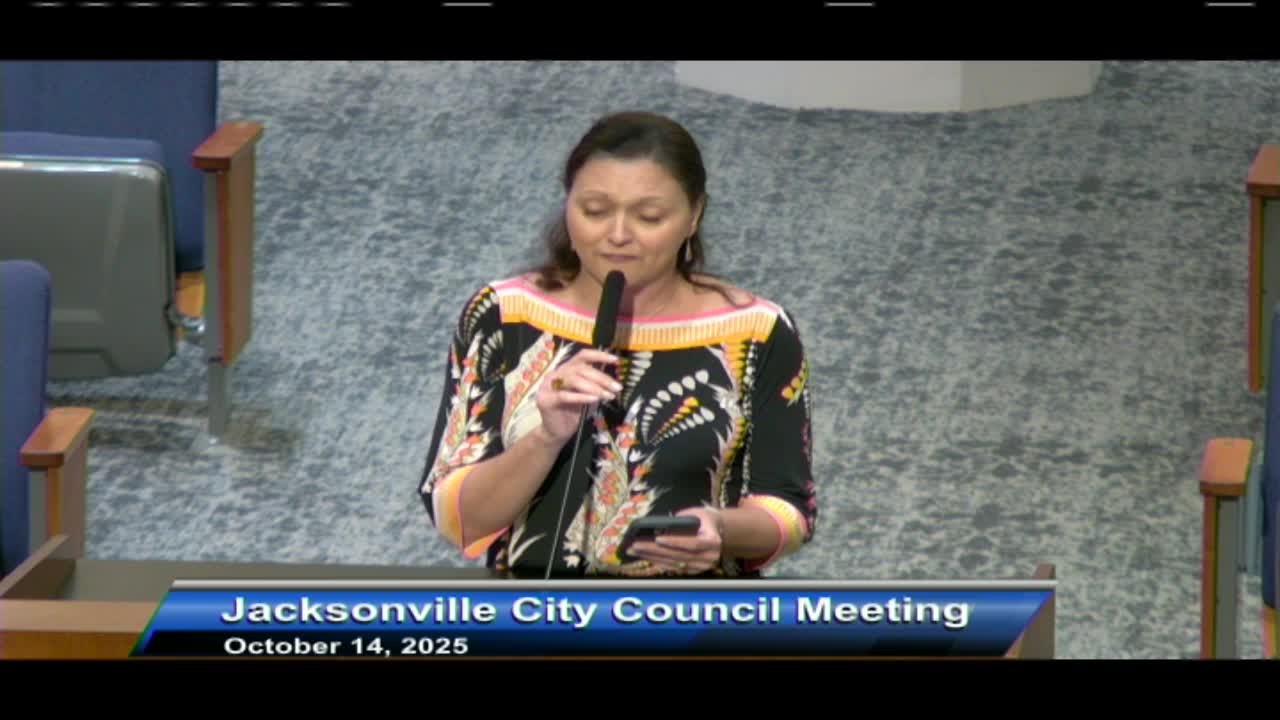Council sets $26 million public‑safety contingency from reserves with guardrails for personnel pay
Get AI-powered insights, summaries, and transcripts
Subscribe
Summary
Jacksonville City Council approved an emergency appropriation creating a $26 million reserve for public‑safety staffing and related costs, adding language limiting use to personnel and associated expenses; councilmembers framed the move as a show of support for police and fire recruitment and retention.
Jacksonville City Council on Oct. 14 approved an emergency appropriation to create a public‑safety contingency funded from general reserves and directed toward personnel and related expenses. The council adopted the measure as amended and set the contingency at $26 million.
What the council approved: Members voted to create a designated contingency within the general reserve for public‑safety recruitment and retention programs, pay adjustments and other personnel‑related costs. A council floor amendment from Councilmember White added guardrails specifying that the funds are intended for personnel and related expenses, including salaries and benefits. The council adopted the amended measure and moved the ordinance as an emergency.
Why it matters: City officials said the appropriation addresses near‑term needs in recruitment, retention and pension/benefit pressures for Jacksonville Fire and Rescue Department (JFRD) and Jacksonville Sheriff’s Office (JSO). The reserve is drawn from available general reserves and requires future council approval for any specific spending out of the contingency.
Debate on amount: Councilmembers negotiated the size of the contingency on the floor. An initial floor proposal would have set aside $13.4 million; Councilmember Arias proposed $20 million and a further floor movement raised the amount to $26 million that ultimately passed. Supporters characterized the figure as a proactive step to back public‑safety staffing needs; at least one member said a larger reserve would reduce pressure for other one‑time spending in future budgets.
Quotation from council: “It’s guardrails that gives our public‑safety sector some comfort level that this won’t be buying fire trucks and helicopters — it’ll be used to keep people on the street if so needed,” Councilmember Matt White said after the amendment passed.
Vote and finalization: The final vote on the ordinance as amended and passed as an emergency was unanimous; the council recorded 16‑0 in favor. The contingency requires two‑thirds support to spend funds later, and any specific draw from the contingency will return to council for a separate appropriation vote.
Implementation and next steps: The City’s Chief Financial Officer and the departments will be responsible for tracking the contingency and returning to council with requests for specific uses and reporting. Councilmembers said they expected protocol and reporting to ensure transparency and that funds would be used primarily for frontline staffing and related obligations.
Ending: Councilmembers described the action as a strong, bipartisan show of support for public‑safety personnel amid recruitment and retention challenges. The reserve creates a funding pathway that the council said will allow faster response to workforce needs while retaining legislative oversight on specific spending.
